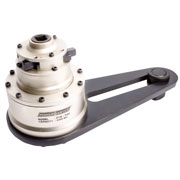Online Hold’em Tournaments: How to Succeed
Online Hold’em tournaments are a thrilling way for poker enthusiasts to test their skills and potentially win significant prizes. Whether you’re a beginner looking to dip your toes into the competitive world of online poker or an experienced player aiming to refine your strategies, understanding how to succeed in these tournaments is crucial. This article will delve into the intricacies of 홀덤사이트, offering valuable insights and strategies to help you emerge victorious.
Understanding the Basics
Before diving into strategies, it’s essential to understand the basic structure of online Hold’em tournaments. In a typical Texas Hold’em tournament, each player starts with an equal number of chips. The blinds (mandatory bets) increase at regular intervals, forcing players to make moves and engage in the game. The goal is to accumulate chips by winning hands, either by having the best hand at showdown or by making opponents fold.
There are various types of Hold’em tournaments, including:
- Sit and Go Tournaments: These start as soon as a specified number of players have registered.
- Multi-Table Tournaments (MTTs): These have a scheduled start time and can involve thousands of players.
- Freeroll Tournaments: These are free to enter but often have smaller prize pools.
- Guaranteed Tournaments: These promise a minimum prize pool regardless of the number of participants.
Understanding the structure and rules of the tournament you’re entering is the first step toward success.
Early Stages: Building a Foundation
In the early stages of an online Hold’em tournament, your primary goal should be to build a solid foundation without taking unnecessary risks. Here are some strategies to consider:
- Play Tight-Aggressive (TAG): In the beginning, adopt a tight-aggressive approach. This means playing fewer hands but playing them aggressively when you do. Focus on premium hands like high pairs (Aces, Kings, Queens) and strong suited connectors (Ace-King, Ace-Queen). This strategy minimizes risk while maximizing potential gains.
- Position is Key: Always be aware of your position at the table. Playing in later positions (closer to the dealer button) gives you more information about your opponents’ actions and allows for better decision-making. Early positions should be played more conservatively.
- Avoid Fancy Plays: In the early stages, avoid bluffing and complicated plays. Stick to straightforward poker strategies, as many players will still be in the game, and there’s no need to risk your stack with risky moves.
- Observe Your Opponents: Pay close attention to your opponents’ playing styles. Identifying whether they are tight or loose, aggressive or passive, can give you an edge in future hands. Use this time to gather information that will be useful in later stages.
Middle Stages: Adapting and Accumulating
As the tournament progresses into the middle stages, the blinds increase, and the stakes get higher. This phase requires a shift in strategy:
- Loosen Up: With the blinds and antes increasing, you can’t afford to play too tight. Start loosening up your range, especially in late positions. Look for opportunities to steal blinds and accumulate chips.
- Steal Blinds and Antes: In the middle stages, stealing blinds becomes crucial. If everyone folds to you in a late position, consider raising with a wide range of hands to steal the blinds and antes. This tactic helps maintain and grow your chip stack without risking much.
- Reevaluate Your Opponents: Continue observing your opponents. By now, you should have a good read on their playing styles. Adjust your strategy based on this information. For example, if an opponent is consistently folding to raises, target them for blind steals.
- Manage Your Stack: Be mindful of your chip stack relative to the blinds. If you have a large stack, use it to apply pressure on shorter stacks. Conversely, if you’re short-stacked, look for spots to go all-in and double up.
- Avoid Big Confrontations: While accumulating chips is important, avoid unnecessary big confrontations unless you have a strong hand. Losing a large portion of your stack can be devastating at this stage.
Late Stages: Navigating the Endgame
The late stages of an 홀덤사이트 tournament are where the money is made. The field is narrower, and the blinds are high. This phase requires precision and courage:
- Adjust to Stack Sizes: The stack sizes of your opponents become crucial. Short stacks will be looking for spots to go all-in, while big stacks will try to bully the medium stacks. Adjust your strategy accordingly, targeting medium stacks if you’re big, and looking for double-up opportunities if you’re short.
- Use ICM (Independent Chip Model): Understanding ICM is vital in the late stages. It helps you make better decisions regarding when to call or fold based on the prize distribution. Sometimes, folding a marginal hand can be more profitable in terms of ICM.
- Be Aggressive: In the late stages, aggression pays off. With high blinds, stealing blinds and antes becomes even more important. Be willing to put pressure on your opponents, especially if you have a large stack.
- Stay Focused: Fatigue can set in during the late stages of a long tournament. Stay focused and avoid making impulsive decisions. Take breaks if necessary to stay sharp.
- Consider the Payout Structure: The payout structure of the tournament should influence your decisions. If there are significant jumps in the prize money, adjust your strategy to aim for these jumps. This might mean playing more conservatively near a payout bubble or more aggressively if you’re aiming for a higher payout.
Heads-Up Play: The Final Showdown
If you’ve made it to heads-up play, congratulations! This is the final phase, and your approach needs to be fine-tuned:
- Play Aggressively: In heads-up play, aggression is key. The blinds are high, and you can’t afford to wait for premium hands. Play a wide range of hands aggressively, and put your opponent to tough decisions.
- Adjust to Your Opponent: Quickly assess your opponent’s heads-up strategy. If they are passive, exploit this by frequently raising and betting. If they are aggressive, be more selective with your hands and look for spots to trap them.
- Mix Up Your Play: Heads-up play is highly dynamic. Mix up your play to keep your opponent guessing. Balance your aggressive plays with occasional traps and slow plays.
- Stay Calm: Emotions can run high in heads-up play. Stay calm and focused, making rational decisions rather than letting the pressure get to you.
Key Psychological Aspects
Success in online Hold’em tournaments is not just about strategy; it also involves psychological strength:
- Patience: Patience is critical throughout the tournament. There will be periods where you need to fold several hands in a row. Avoid the temptation to play marginal hands out of boredom or frustration.
- Emotional Control: Maintain emotional control, especially after bad beats or losses. Tilt (playing poorly due to frustration) is a common pitfall. Take deep breaths, step away from the computer if needed, and regain your composure.
- Focus: Stay focused on the game. Avoid distractions such as checking your phone or browsing the internet. Treat the tournament with the same seriousness as a live poker game.
- Confidence: Confidence in your abilities is crucial. Trust your reads and decisions. Even if you make a mistake, learn from it and move on confidently.
Practical Tips for Online Play
Online Hold’em tournaments have specific aspects that differentiate them from live play:
- Use Software Tools: Take advantage of software tools like poker tracking programs and heads-up displays (HUDs). These tools provide valuable statistics on your opponents, helping you make informed decisions.
- Multi-Tabling: Many online players multi-table to increase their volume and potential winnings. If you choose to multi-table, start with a manageable number of tables and gradually increase as you become more comfortable.
- Bankroll Management: Effective bankroll management is crucial for long-term success. Only play in tournaments that fit your bankroll to avoid the risk of going broke.
- Comfortable Setup: Ensure you have a comfortable and ergonomic setup. A good chair, proper lighting, and minimal distractions can enhance your focus and performance.
- Internet Connection: A stable internet connection is essential. Losing connection during a crucial hand can be costly. Consider having a backup internet option in case of connectivity issues.
Learning and Improvement
Continual learning and improvement are key to succeeding in online Hold’em tournaments:
- Study: Regularly study poker strategy through books, videos, and forums. Analyze your own play and identify areas for improvement.
- Review Sessions: Review your tournament sessions using hand history replayers. Look for mistakes and missed opportunities. This will help you refine your strategy.
- Seek Feedback: Join online poker communities and seek feedback from experienced players. Engaging in discussions and sharing hands for review can provide valuable insights.
- Track Progress: Keep track of your progress, including wins, losses, and key hands. This helps in understanding your strengths and weaknesses over time.
- Adapt: Poker is an evolving game. Stay updated with the latest trends and strategies. Be willing to adapt and evolve your playstyle as the game changes.
Conclusion
Online Hold’em tournaments offer an exhilarating blend of strategy, skill, and psychological warfare. By understanding the basics, employing effective strategies at different stages, maintaining psychological fortitude, and continually learning, you can significantly improve your chances of success. Remember, every tournament is a learning opportunity. Embrace the challenges, stay focused, and enjoy the journey to becoming a successful online Hold’em tournament player.














